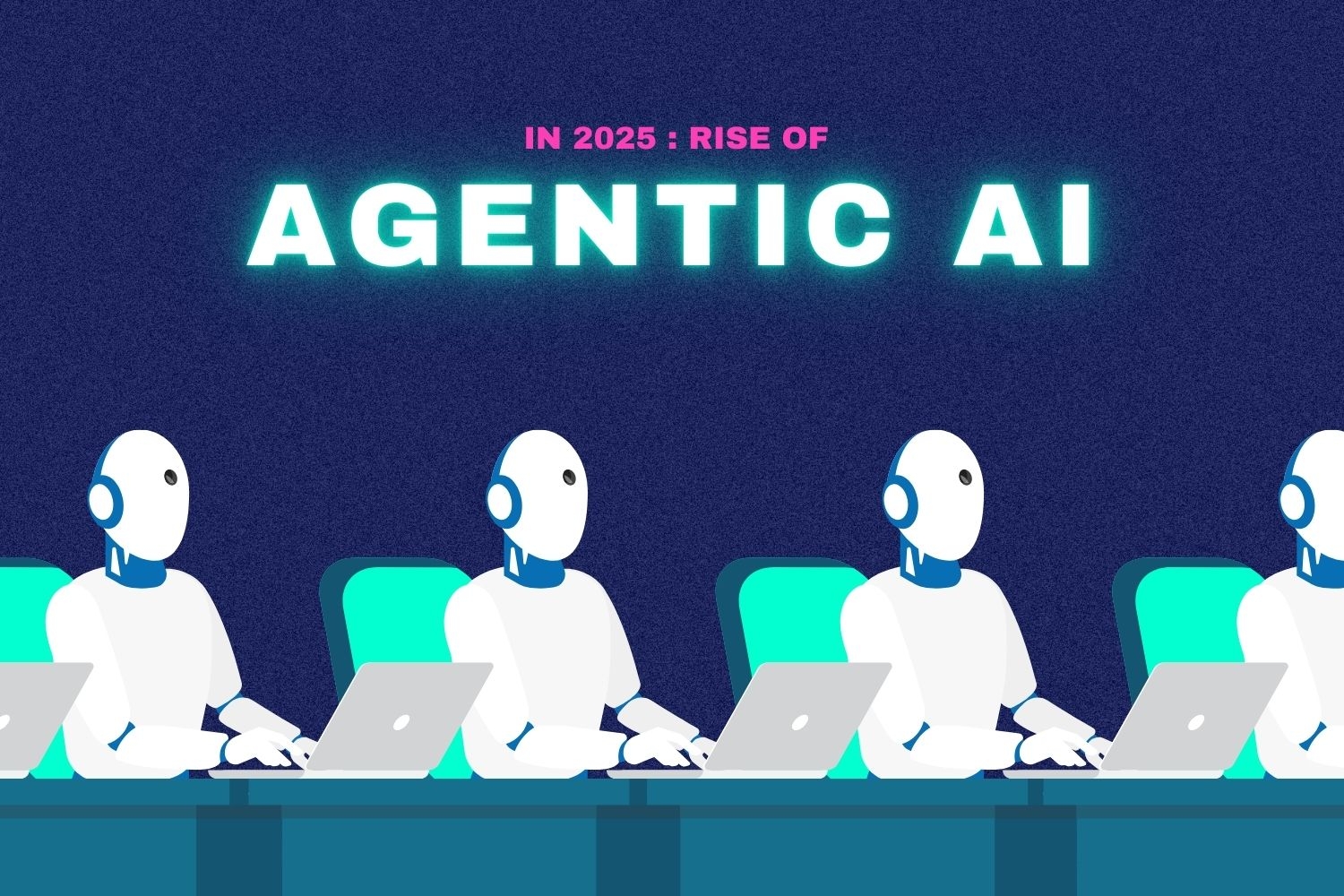As the world steps into 2025, the technology landscape is poised for a transformative shift. The convergence of artificial intelligence (AI) and autonomous agents is set to redefine how businesses operate, how consumers interact with technology, and how industries evolve. From enhancing productivity to revolutionizing customer experiences, agentic AI is becoming the cornerstone of innovation. This paradigm shift promises to unlock unprecedented opportunities across sectors, ushering in a new era of intelligent automation and decision-making.
The Evolution from Automation to Agentic AI
For years, automation has been synonymous with efficiency—streamlining repetitive tasks and optimizing operations. However, 2025 marks a shift from basic automation to more sophisticated, autonomous AI agents. These agents are not just task executors; they possess the ability to make decisions, learn from data, adapt to new environments, and interact with other systems without constant human oversight. Their ability to analyze complex scenarios and act independently is setting a new standard for what technology can achieve.
Companies like NVIDIA and Cohere are at the forefront of this revolution. NVIDIA’s focus on bridging agentic AI with physical AI is creating smarter, more autonomous systems in robotics and manufacturing. Cohere’s new platform, 'North,' simplifies the development and deployment of AI agents, empowering businesses to integrate advanced decision-making capabilities seamlessly. These innovations are not only improving operational efficiency but are also fostering innovation in product development and customer engagement.
Why Agentic AI Matters in 2025
The significance of agentic AI lies in its versatility and scalability. Unlike traditional AI models designed for narrow, pre-defined tasks, agentic AI can handle complex, multi-step operations and collaborate across systems. This adaptability is unlocking new possibilities across sectors:
- Healthcare: AI agents are streamlining diagnostics, managing patient care plans, and even aiding in drug discovery. Personalized medicine is becoming more accessible as AI-driven systems analyze patient data to recommend tailored treatment options.
- Finance: Autonomous agents are detecting fraud, managing portfolios, and providing personalized financial advice. High-frequency trading and risk assessment are becoming more accurate and responsive.
- Retail: AI-driven customer service bots are enhancing user experience by providing real-time, personalized recommendations. Inventory management and supply chain logistics are being optimized through predictive analytics.
- Manufacturing: Smart factories powered by agentic AI are reducing downtime, predicting maintenance, and optimizing supply chains. Advanced robotics are collaborating with human workers to improve production quality and speed.
Agentic AI is also driving innovations in sectors like education, where adaptive learning platforms personalize curricula based on student progress, and in transportation, where autonomous vehicles are revolutionizing mobility.
The Power of Integration: Agentic AI and Physical Systems
One of the most exciting developments in 2025 is the integration of agentic AI with physical systems—a concept NVIDIA CEO Jensen Huang highlighted during CES 2025. This integration means that AI will not only exist in the digital realm but will also control physical devices, from autonomous vehicles to industrial robots. This fusion creates systems that can perceive, decide, and act in the real world with minimal human intervention. These systems will operate with heightened precision, adaptability, and efficiency.
Imagine a logistics company where autonomous drones coordinate with smart warehouses, or agricultural farms where AI agents manage irrigation, pest control, and harvesting. The potential for productivity gains and cost savings is enormous. In smart cities, interconnected AI agents could manage traffic flow, energy consumption, and public services, enhancing urban living standards.
Challenges and Ethical Considerations
Despite its promise, agentic AI also presents significant challenges. Security, privacy, and ethical use are paramount. Autonomous systems making critical decisions raise concerns about accountability and transparency. Bias in decision-making, potential job displacement, and the risk of malicious use are issues that need proactive management. As these systems become more autonomous, the need for clear governance and ethical oversight grows exponentially.
Regulatory frameworks must evolve to address these challenges. Governments and organizations need to collaborate on establishing ethical guidelines, safety standards, and accountability measures for autonomous systems. Tech companies must prioritize explainability and fairness in AI decision-making processes. Developing mechanisms for auditing AI decisions and ensuring compliance with legal and ethical standards will be critical to fostering public trust.

The Road Ahead: Preparing for the Agentic AI Era
To harness the full potential of agentic AI in 2025, businesses must take strategic steps:
- Invest in Infrastructure: Scalable cloud solutions, edge computing, and robust data pipelines are critical for deploying AI agents effectively. Advanced computing power and real-time data processing capabilities will be essential.
- Focus on Talent: Hiring and training professionals skilled in AI development, data science, and system integration will be vital. Cross-disciplinary teams combining technical expertise with domain knowledge will drive innovation.
- Prioritize Security: Implementing cybersecurity measures to safeguard AI systems from malicious attacks is non-negotiable. Developing resilient systems capable of detecting and mitigating threats in real-time is crucial.
- Adopt Ethical AI Practices: Building transparent, fair, and explainable AI systems should be a priority to gain user trust. Creating internal review boards and ethical committees can help guide responsible AI development.
- Foster Collaboration: Partnering with academic institutions, industry leaders, and regulatory bodies can accelerate responsible AI advancements and standard-setting.
Conclusion
2025 is not just another year of incremental tech advancements—it is the dawn of the agentic AI era. Autonomous agents are set to transform industries by making systems smarter, more efficient, and more responsive. Companies that embrace this shift will lead the next wave of innovation, while those that hesitate may find themselves struggling to keep up. The competitive landscape will be reshaped by those who can swiftly integrate agentic AI into their operations.
As AI becomes more embedded in our daily lives, the balance between innovation and responsibility will define the trajectory of this powerful technology. The future belongs to those who can navigate this balance, harnessing the capabilities of agentic AI to drive progress while safeguarding ethical standards. The global economy, workforce dynamics, and societal structures are on the cusp of significant transformation.
Welcome to the age of intelligent agents—an era where AI doesn't just assist but autonomously drives the world forward. In this new age, the collaboration between human ingenuity and machine intelligence will unlock endless possibilities, shaping a smarter, more connected world.
